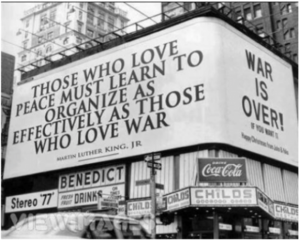Matt Taibbi: How to Stop Going to War
Matt Taibbi concludes that both the Democrats and Republicans cannot resist the allure of future wars. His article: "To Stop War, America Needs a Third Party The American political system has been captured by the military, and only an independent political power can prevent the next Afghanistan." Here's an excerpt:
Afghanistan is as pure a bipartisan fiasco as we’ve had in recent times. Both parties were directly and repeatedly complicit in prolonging the catastrophe. Republicans and Democrats were virtually unanimous in approving the initial use-of-force, both voted over and over to fund the war to insane levels, and both Democratic and Republican presidents spent years covering up evidence of massive contracting corruption, accounting failure (as in, failure to do any accounting), war crimes, and other problems.Afghanistan was the ultimate symbol of the two-party consensus, the “good war” as Barack Obama deemed it, and defense spending in general remained so sacrosanct across the last twenty years that the monster, $160 billion defense spending hikes of 2017-2018 were virtually the only policy initiative of Donald Trump’s that went unopposed by a Democratic leadership. “We fully support President Trump’s Defense Department’s request,” was Chuck Schumer’s formulation in 2018, choosing then to reward the Pentagon for turning Mesopotamia into a Mad Max set and spending two trillion dollars on the by-then-inevitable fall of Kabul.
The status quo will not offer us any solution. The bad players also include the morally corrupt legacy news media:
Worse, as the performance of the legacy media in the last few weeks shows, the national commentariat is also fully occupied by the military establishment. Staffed from top to bottom by spooks and hawks, the corporate press’s focus from the pre-Iraq firing of Phil Donahue through the past few weeks of guest star appearances on CNN, Fox, and MSNBC by the likes of Leon Panetta, John Bolton, Karl Rove, David Petraeus and Marc Thiessen — all people with direct involvement in the Afghan mess — has been the same. It keeps the public distracted with inane tactical issues or fleeting partisan controversies, leaving the larger problem of a continually expanding Fortress America unexamined.On a related note, Taibbi pointed out that the U.S. military is such a mess that it cannot be meaningfully audited. Here is an excerpt from Taibbi's 2019 article, "The Pentagon’s Bottomless Money Pit: When the Defense Department flunked its first-ever fiscal review, one of our government’s greatest mysteries was exposed: Where does the DoD’s $700 billion annual budget go?"We need new institutions free of Pentagon influence, probably starting with a new political party.
Despite being the taxpayers’ greatest investment — more than $700 billion a year — the Department of Defense has remained an organizational black box throughout its history. It’s repelled generations of official inquiries, the latest being an audit three decades in the making, mainly by scrambling its accounting into such a mess that it may never be untangled.Ahead of misappropriation, fraud, theft, overruns, contracting corruption and other abuses that are almost certainly still going on, the Pentagon’s first problem is its books. It’s the world’s largest producer of wrong numbers, an ingenious bureaucratic defense system that hides all the other rats’ nests underneath. Meet the Gordian knot of legend, brought to life in modern America.

